Strong institutions, accountable governments, disciplined citizens as well as participatory governance play a big part in a country’s long-term growth and development. This was the gist of the messages delivered by resource persons Dean Ronald Mendoza of the Ateneo School of Government and Director Aida Maria Talavera of the Commission on Audit during the Development Academy of the Philippines’ Kartilya Session entitled “Citizen-Engaged Governance†last April 6 at the DAP headquarters in Pasig City. Mendoza presented a cross-country comparison of economic setbacks and recoveries in Malaysia, Indonesia, and the Philippines and pointed out that a country recovers faster when its institutions are strong because they serve as an economic foundation for that country. He said that institutions or behavioral norms, values and unwritten rules play a big part in a country’s long-term growth and development. 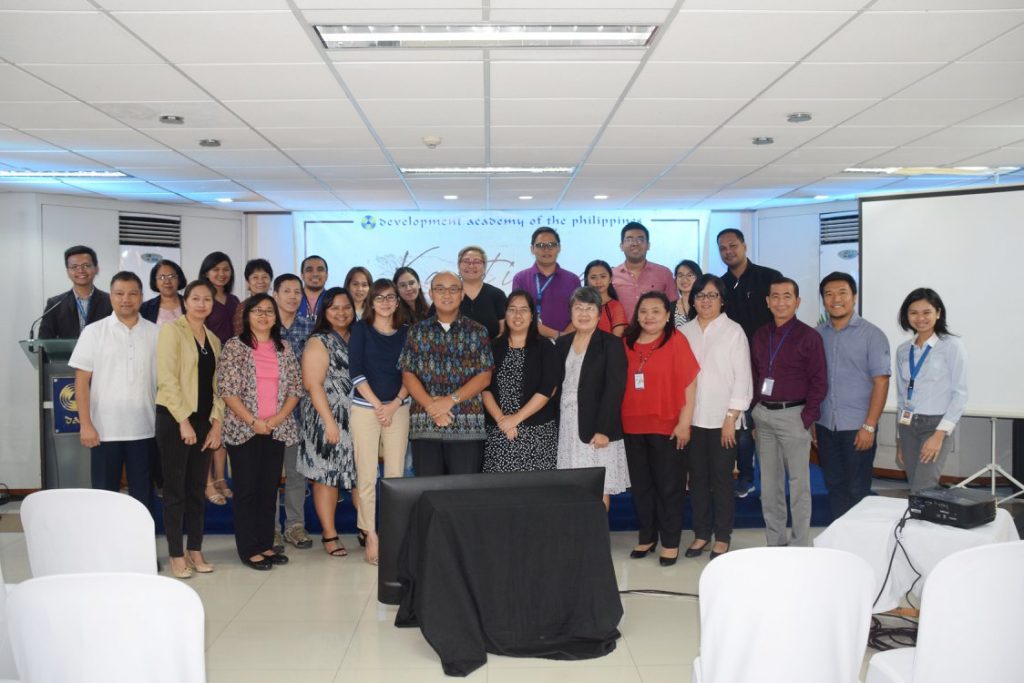
Category: Capability Development
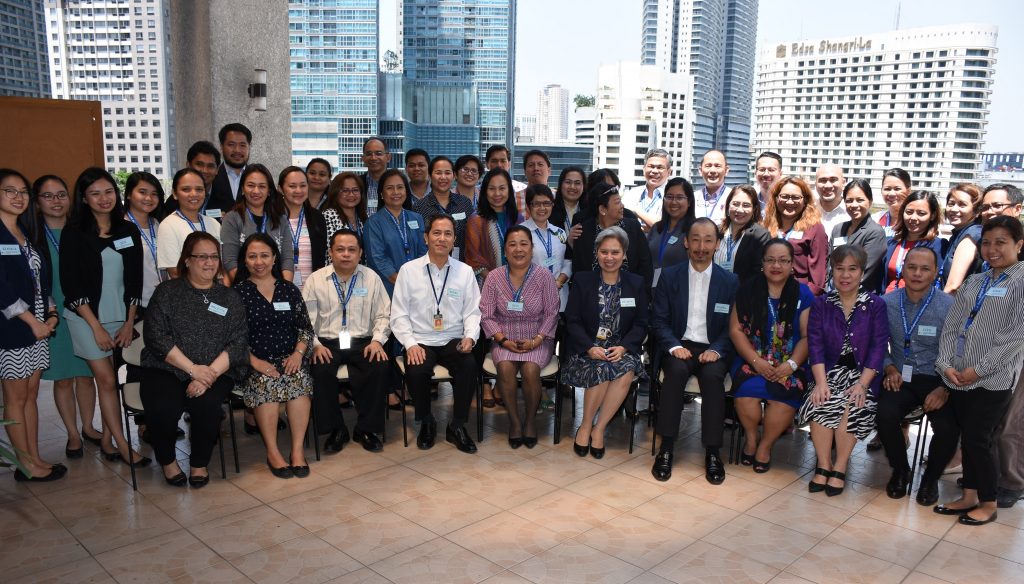
The first Future Center and Innovation Laboratory will be set up in the country as the Development Academy of the Philippines plans to establish a dedicated facility that is envisioned to help government agencies and other stakeholders co-create solutions to “wicked†problems through a new, innovative approach. The first step to this trail-blazing project was taken when Naoki Ogiwara, managing director of Knowledge Associates Japan Ltd., visited the Academy last March 19-23 to help in the concept development of the planned Future Center and Innovation Laboratory for the public sector. The said assistance was part of the Asian Productivity Organization’s Technical Expert Service (TES) for the Philippines in relation to the country’s designation as the APO’s Center of Excellence on Public Sector Productivity in 2015. First of its kind Although already a trend in European countries, the planned Future Center and Innovation Laboratory would be the first of its kind in the Philippines. The DAP has received funding from the national government for its facilities expansion plan for DAPCC Tagaytay, which involves the construction of a 14-storey building that will serve as the Future Center and Innovation Laboratory. The said building will provide state-of-the-art facilities and training to help government agencies and other stakeholders solve their persistent problems through collaborative and innovative problem solving. As part of the TES, Ogiwara conducted an executive orientation on knowledge productivity for DAP officers in Pasig where ideas regarding the planned facility were generated. The same orientation was conducted at DAPCC Tagaytay where the APO expert was also given a tour of the planned construction site. Stakeholders’ appreciation In order to understand stakeholders’ expectations for the Future Center and Innovation Laboratory, Ogiwara also conducted interviews with top officials of some of the Academy’s partner agencies such as Civil Service Commission Chairperson Alicia de la Rosa-Bala, Department of Budget and Management Undersecretary Lilia Guillermo, Department of Science and Technology Secretary Fortunato de la Peña, and National Economic and Development Authority Undersecretary Adoracion Navarro. These partner agencies were very positive about the prospect of developing the country’s first Future Center and have agreed to work closely on pilot studies for the said facility.
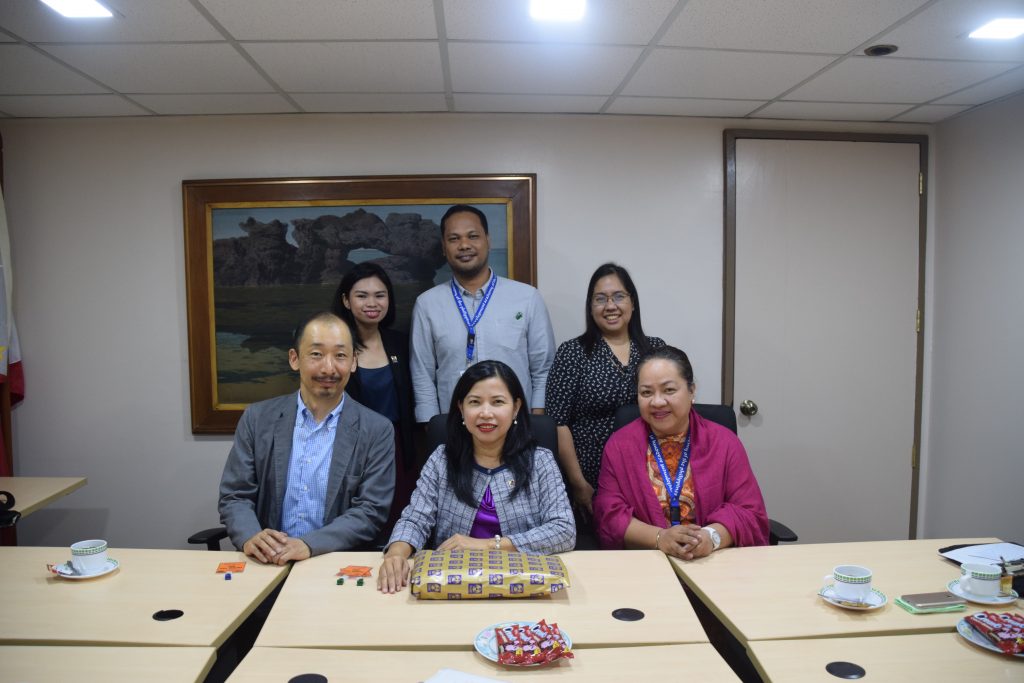
Ogiwara also worked with key DAP officers on developing the concept paper for the Future Center and Innovation Laboratory. Using information gathered from various stakeholders, they discussed and formulated the purpose, program, people, business models, and pilot plans for the Future Center. The output of the workshop was then presented to DAP management, which also gave a very positive response.
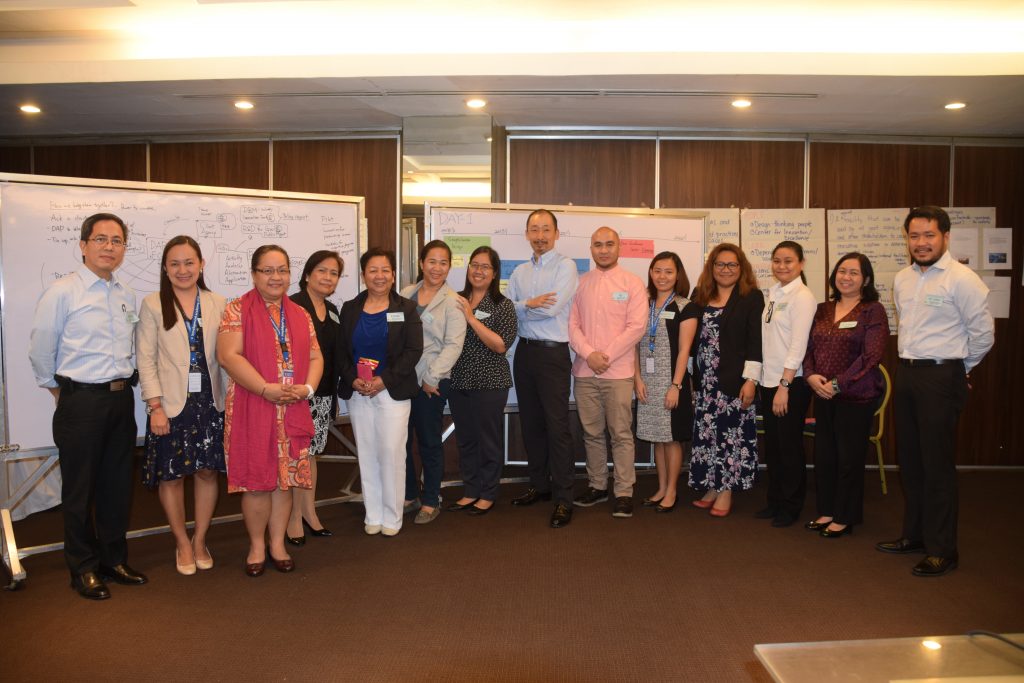
Foundational work More like a foundational and ongoing work rather than a finished development, the TES is set to be followed by other activities such as benchmarking visits, trainings on design thinking and facilitation, pilot test design, and client consultations, all of which are expected to further equip the Academy in designing and running its Future Center and Innovation Laboratory. Ogiwara, in addition to his spade work with the DAP, also served as resource speaker in a Kartilya session on Knowledge Productivity in the Public Sector, which was attended by various government agencies that have also become interested in the idea of such a facility for the public sector. The DAP, which has earned the reputation of revolutionizing minds in the 1970s when it was first incepted, is again trying to respond to the challenge of becoming the breeding ground of innovative government programs for future generations, DAP management said. Through the Future Center and Innovation Laboratory, it explained the 44-year-old institution believes it is taking the next big step to reinvent itself by aiming not only to provide cutting-edge facilities but also lead the whole public sector towards innovation management and creative problem solving.
The Development Academy of the Philippines recently hosted the Asian Productivity Organization’s “Workshop on Developing Productivity Specialists in the Public Sector†at the O.D. Corpuz Hall at the DAP Building in Pasig City. The workshop, which was attended by 28 participants from 14 APO member countries, was conducted to confirm the quality and relevance of the different units contained in the modules of the course manual developed last year by APO experts. The workshop also aimed to equip participants with the knowledge and tools that will develop their competencies as public sector productivity specialists. Course manual development It would be remembered that a group of public sector productivity experts led by Dr. Marson, then acting as chief expert, convened in 2016 in Manila to discuss the development of the course manual on developing productivity specialists in the public sector. This course manual was envisioned to help develop the competencies of productivity and quality practitioners who can assist productivity improvement efforts of public sector organizations in member countries of the APO. 
The Development Academy of the Philippines, through its Center of Excellence on Public Sector Productivity (COE-PSP) Program, conducted its second Kartilya session entitled “Good Governance and Regulatory Management†last March 16 as part of its public sector productivity seminar series this year. 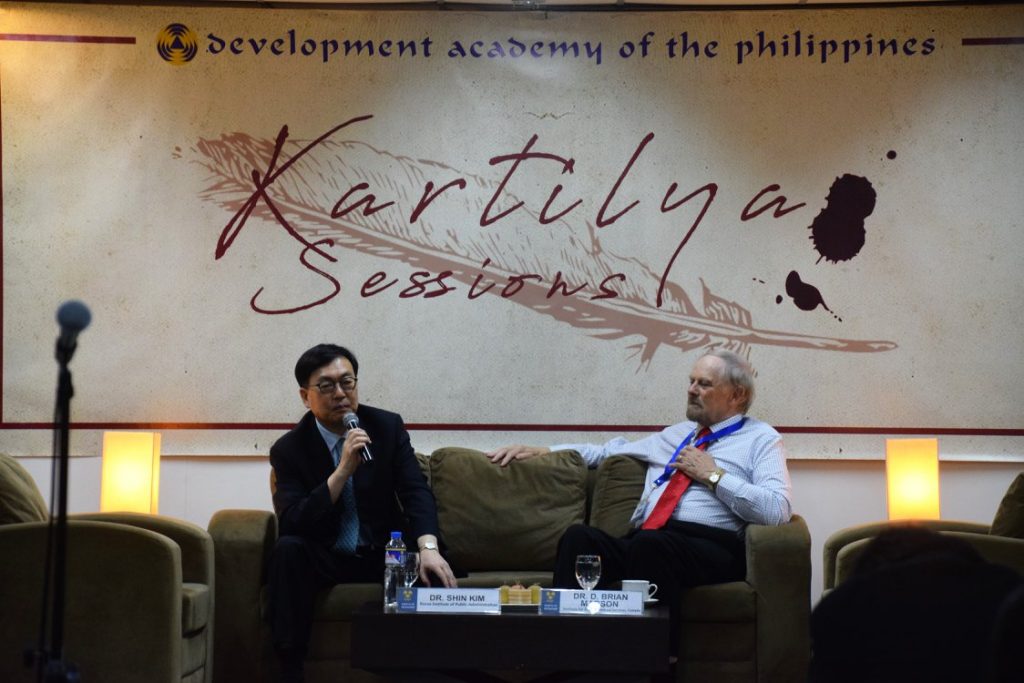
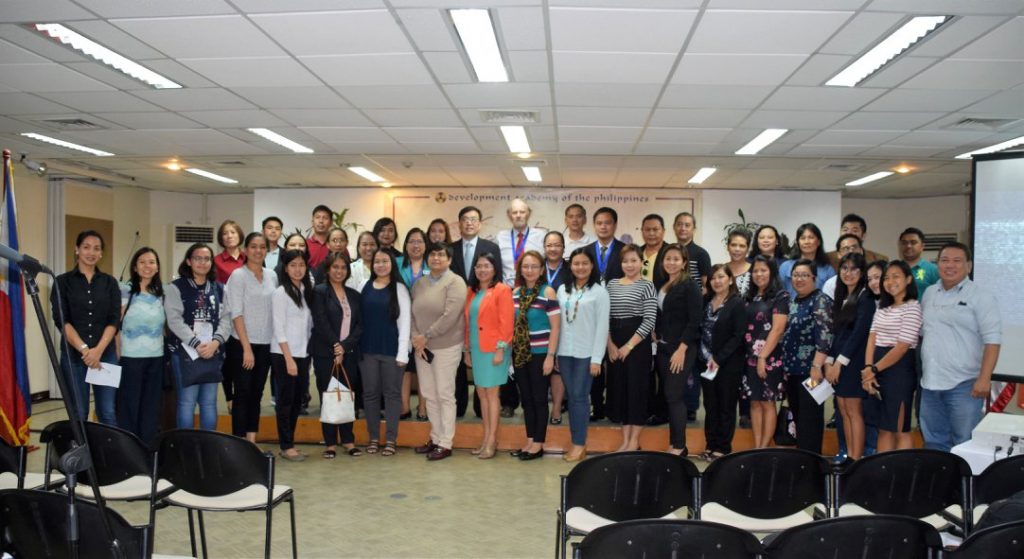

The Center of Excellence on Public Sector Productivity is sponsoring 11 Kartilya sessions for the 2018 Productivity Series centering on relevant issues and concerns affecting national development and productivity. These issues have been identified as tax reforms, e-government, regulatory management, knowledge management and innovation, citizen-centered governance, lean management, business excellence, big data analytics, fair competition, phronetic leadership, 5S, and quality circle.
The first of this series of Kartilya sessions started last March 9 with the theme “Implications of the Tax Reform on Public Sector Productivity,†with Director Juvy Danofrata of the Department of Finance and Executive Director Jose Enrique Africa of the IBON Foundation as resource speakers. Ms. Danofrata discussed the principles and application of the Tax Reform for Acceleration and Inclusion or TRAIN Law provisions vis-à -vis the key provisions of its Package 1 that is supposed to uplift the lives of Filipinos especially in the long term. Africa, on the other hand, identified what certain sectors claimed as the loopholes and disadvantages of the said law to the Filipino public.
The tax reform
Danofrata emphasized that the said law, or Republic Act No. 10963, aims to correct a number of deficiencies in the current taxation system and hopes to reduce poverty and inequality through a system where the rich would have a bigger contribution in tax payments while the poor would benefit more from the government’s programs and services.
The DOF, according to Danofrata, acknowledged that the TRAIN Law definitely has an effect on prices of commodities; however, it should not be a very significant increase owing to the research that they conducted that showed the increase should only be 0.3 percent for food and 0.7 percent for other basic commodities.
To address the issue of those who would be directly affected by the oil excise tax, the DOF proposed a P200-per-month cash transfer to the poorest 10 million households in 2018. This will then be increased to P300 per month in 2019 and in 2020.
Infrastructure projects
Danofrata said the TRAIN law envisions to improve the quality of life of all Filipinos by using 70 percent of the revenues that would be raised to fund infrastructure projects over a five-year period as part of the “Build, Build, Build Program†of the Duterte administration. These include provisions for military structure, sports facilities for public schools, and potable drinking water in public places.Â
The remaining 30 percent, meanwhile, will be used to fund certain social services especially for sugar farmers, investments in education, health, social protection, employment, free skills training at the Technical Education and Skills Development Authority, and the conditional fund transfer to the poorest 10 million households as determined by the Department of Social Welfare and Development.
Through these infrastructure developments, the government hopes to yield a higher quality of education among the workforce, higher income for farmers because of the cash transfers, more efficient farming practices and farm-to-market accessibility, as well as increase in mobility by improving mass transport system in the country. The BIR Director shared that the vision of the TRAIN Law is not to burden the people but to make sure that in the long run, all will benefit from it to provide everybody a better future.
The critique
Africa, for his part, stressed that although the government was able to come up with a comprehensive tax reform program through the TRAIN Law, such law did not consider the context of the Filipino public and the unintended consequences of the so-called “most comprehensive taxation system†in the country. He stated that one of the loopholes is that the gains are only concentrated on the rich while the system takes so much from the poor. Such law, he said, would only increase the productivity of the BIR and Bureau of Customs at the expense of the tax system’s effectiveness in delivering vital social and development outcomes.
Moreover, Africa stressed that the claim that the TRAIN Law will eventually rescue 21 million Filipinos from poverty is an overstatement. Based on the data they have acquired from the Philippine Statistics Authority, it is not true that 99 percent of Filipinos will benefit from it despite the purported cash transfers that will then be lifted by 2021. He emphasized that the real effect of the TRAIN Law would only be felt in 2021 by the poorest of the poor after the Cash Transfer Program of the DSWD has ended.
More than TRAIN
The IBON official said that although the TRAIN Law supposedly aims to improve social services, healthcare and education, it would take a lot more factors to be able to address poverty and inequality in the country.
Both speakers encouraged Filipinos to continuously inquire and enter into dialogue with government officials and other sectoral organizations as they assess the implications of the TRAIN Law to the Filipino public’s everyday life. They said that all people need to be vigilant in order for them to be able to assess later the impact of such law to national development and to the people’s collective aspirations.
Africa conveyed his last point that the government need not actually collect taxes from all. Ms. Danofrata concluded by reminding everyone to do their respective shares for the realization of a better life for every Filipino. In the end, both agreed that the common good has to be articulated by every Filipino citizen.

Last November 17, 2017, the Development Academy of the Philippines thru the Center of Excellence on Public Sector Productivity conducted the 5th installment of the eight KARTILYA Sessions comprising this year’s ‘Productivity Series.’ The theme of the Session was “Performance Management and Productivity.†There were two speakers in the event: Dir. Gerald Janda of the Department of Budget and Management who discussed “Performance-Based Management and Incentive Systems (PMIS) in the Philippines†and Assistant Secretary Amuerfina Reyes of the Department of Labor and Employment who presented the “Implementation of the Results- Based Performance Management System (RBPMS) in DOLE.â€
Towards A More Responsive Government. Director Janda stressed the point that Administrative Order 25 series 2011 otherwise known as ‘Results-Based Performance Management System’ and the Executive Order No. 80 series 2012 also known as ‘Performance- Based Incentive System’ were laws passed to restore the confidence of the Filipino people in the capacity of the public servants to make people’s lives better, safer, and healthier. It aims to mobilize a more responsive government, streamline government operations, and enforce a more transparent bureaucracy. This Program resulted to integration and harmonization of performance assessments of oversight agencies, transparency of agency performance, improvement in quality of performance measurements and management, and increased compliance to governance standards and statutory requirements for accountability and transparency. One big challenge faced by the government according to Dir. Janda is how to show meaningful results to the citizens proving in effect that what the government is doing is for the benefit of the Filipino people. Assistant Secretary Reyes shared the implementation efforts of DOLE relative to performance management. She highlighted performance monitoring and coaching to inspire co-workers in the department. She pointed out that it is in looking for instances where we can be of help to other people that will guide them to achieve more. He zeroed in on the idea that RBPMS implementation is not about the incentive or the money involved but it is all about our performance and how our clients perceive our performance. ASec. Reyes gave much emphasis on better government performance and accountability.

Some Take Aways. This Session gave us two insights to learn: first, effecting change in the performance management means enhancement of the performance management system such as but not limited to integration of HR systems, clarification of Secretariat roles, setting of dates for performance management activities, amendment in the rating scale to indicate higher performance standards, and inclusion of new awards and incentives. These changes hopefully would be translated to acceleration indeed of public sector performance and productivity. In the long run, this would contribute to enhancing our government’s competitiveness; and second, the performance of our duty as part of our public service is our moral obligation and social responsibility to the Filipino public. It is not equated automatically to monetary and non-monetary awards. Meritorious performance would mean performing above what is expected of us leading to innovation and further development. This makes us more competitive.

University of the Philippines assistant professor Dr. Tina Clemente and Development Academy of the Philippines Senior Vice President for Programs Magdalena Mendoza encouraged government offices to measure productivity in order to track their performance, and also to discover opportunities for improvement as well as document their best practices. Clemente and Mendoza served as the resource persons during the DAP’s fourth Kartilya Session (Productivity Series) entitled “Measuring Public Sector Productivity†which was held on November 10, 2017 in Pasig City.
Role of public sector productivity. “How the public sector operates actually affects the competitiveness of a country as a whole,†emphasized Mendoza as she debunked the compartmentalized measurement of productivity between the private and public sectors. The public sector, according to the DAP SVP, has two responsibilities when it comes to productivity enhancement – to improve its own productivity, and then enable all other organizations, both from the government and the private sector, to enhance theirs. Clemente supported this holistic perspective on productivity by citing examples from the World Economic Forum’s survey on Ease of Doing Business. She stated that the top three problems in doing business in the Philippines are 1) inefficient government bureaucracy, 2) inadequate supply of infrastructure, and 3) corruption. This she said is an illustration that public sector productivity should not be treated in a vacuum, but rather seen as an aspect that is related to all socio-economic fields in the country.
Measuring productivity. Clemente presented the technical terminologies in productivity measurement such as inputs, outputs, outcomes, ratio indicators and total factor productivity (TFP). She stressed that the most important point in her talk is about TFP, which is the part of growth that cannot be accounted for by inputs. This includes less tangible indicators such as existing systems and services. Mendoza discussed a case study that measured the productivity of the Bureau of Internal Revenue from year 2000 to 2012 using the Atkinson Review methodology, which may also be applied to other government agencies. Though measuring public sector productivity is a difficult exercise due to poor data availability and comparability, there are important reasons to pursue the task. DAP President and Chief Executive Officer Elba S. Cruz pointed out in her opening remarks that the measurement of public sector productivity boils down to public accountability. She said that since the expenditure of government comes from the people’s taxes, “taxpayers are naturally interested in how the government uses the proceeds from their tax payments.â€

On October 27, 2017, the Center of Excellence on Public Sector Productivity in partnership with the Office of Institutional Partnerships conducted a KARTILYA Session titled, “Rightsizing the Government and its Impact on Productivity.†The resource speaker was a renowned political scientist in the country – Dr. Clarita Carlos of the University of the Philippines – Diliman. This is the effort of the Development Academy of the Philippines to provide an avenue where government agencies, the academe, and other sectors are gathered to discuss relevant issues and concerns affecting national development and productivity such as rightsizing.
The Main Point. Anchoring on the pending legislation: namely, House Bill 5707 and Senate Bill 1395, Dr. Carlos asserted that bureaucratic reform has to be pursued and implemented by the government in the entire bureaucracy by either streamlining or re-engineering government agencies along three areas: structural reform, process and procedures, and human resources. But such a step for Dr. Carlos has to be based on a national strategy framework since such bureaucracy cannot happen as a stand-alone but has to serve as a handmaiden of that strategy.
Things to Remember. Dr. Carlos continued to argue that bureaucratic reform has to be underpinned by a philosophy of good life. The streamlining and re-engineering efforts are made to regulate the entire institution in order to promote the common good; in effect providing good (or better) services to the people. She underscored that together with political commitment, our leaders should also have the political courage to do bureaucratic reform.
Some Rejoinders. Assistant Secretary Myrna Chua of the Department of Budget and Management shared that they are asking the Congress to grant authority to the President of the Philippines to right-size all departments and agencies under the Executive Branch and those created by laws. Dr. Carlos suggested that the best way to fast track rightsizing is for the President to create a Presidential Commission that is apart from the bureaucracy to do the reform. Ms. Angelica Ramirez of the Department of the Interior and Local Government commented that one best way to reform is through international standardization, which according to Dr. Carlos is where the ASEAN is actually going i.e. ISO Certification. The forum revolved on possible ways to realize the reform implying that participating agencies do recognize the need for rightsizing the government.
Participating Agencies. There were 88 participants coming from the following agencies: the Civil Service Commission, Department of Education, Ateneo de Manila University, City Council of Manila, Presidential Commission on Good Government, City of Malabon University, Department of Science and Technology, San Sebastian College, Polytechnic University of the Philippines, Development Academy of the Philippines, Department of the Interior and Local Government, and Department of Budget and Management. _ “Rightsizing the Government and its Impact on Productivity†is the third installment of the eight KARTILYA Sessions dubbed as ‘The Productivity Series.’
The Philippines, through the Development Academy of the Philippines (DAP) and the Asian Productivity Organization (APO), successfully hosted the International Conference on Public Sector Productivity (ICPSP) on October 10-12 at the DAP Conference Center in Tagaytay City. DAP President and Chief Executive Officer Elba S. Cruz opened the conference with the current state of productivity in the public sector. “For the public sector, the journey has been far more complex because of constraints that include limited knowledge or access to updated technology as well as the reluctance to modify or replace long-standing systems and processes,†Cruz said. The ICPSP provided an excellent venue to discuss among public sector professionals the challenges hindering public sector productivity, as well as to come up with ways to resolve them. Office of the President Deputy Executive Secretary and keynote speaker Alberto A. Bernardo was optimistic and took pride in the ICPSP. He said, “The hosting of this conference highlights greater accountability to our public sector agencies to be more agile and responsive in bringing results and achieving outcomes for the benefit of our citizens.†
About the DAP: The DAP is a government-owned and controlled corporation founded by Leonides Virata and Onofre Corpuz on June 23, 1973. Today, the DAP is known as a government think tank and training institution. The DAP, being the National Productivity Organization of the Philippines, serves as the APO Secretariat and the implementing institution of the APO’s Center of Excellence on Public Sector Productivity, a distinction the country earned in 2015.

The Center of Excellence on Public Sector Productivity is sponsoring eight KARTILYA Sessions dubbed as ‘The Productivity Series focusing on relevant issues and concerns affecting national development and productivity. The said sessions will focus on foresight, education, leadership, rightsizing, productivity measurement, performance management, smart regulation, innovation laboratory, and knowledge management. Last October 13, 2017, the theme of the ‘Kartilya’ Session was ‘Foresight and Education in Productivity.’ This is the first installment of the said eight sessions. There were two resource speakers who graced the event: Dr. Santhi Kanoktanaporn, the Secretary-General of Asian Productivity Organization, who delivered a presentation titled, ‘Harnessing Foresight for the Public Sector’ and Cong. Jose Maria Sarte Salceda, the 2nd District Representative of the Province of Albay, who gave a talk on, ‘Increasing Productivity through Quality Education.’
Foreseeing the Future. Secretary General Kanoktanaporn stressed the point that the future does not actually exist because it is simply built by human being. But given that nature of the future, scenario planning is a must. Scenario planning, according to Kanoktanaporn, is more than forecast planning. Scenario planning is used when both uncertainty and complexity are high. It is done through three approaches: deductive, incremental, and inductive approaches. Definitely, there is a need for strengthening strategic foresight capability. For him, institutionalizing strategic foresight capacity requires a paradigm shift and at the same time a cultural shift towards creating a learning organization. He believes that countries should consider moving from traditional planning and national analysis to prospective (scenario) analysis and global perspective.
Educating the Youth. Cong. Salceda through his RA 10931 known as Universal Access to Quality Tertiary Education Act aimed to increase the participation rate among all socioeconomic classes in tertiary education. He presented and explained the provisions on free higher education in state universities and colleges, national government to pay the tuition of students enrolled in local universities and colleges, free technical-vocational education and training in post-secondary technical-vocational institutions, tertiary education subsidy for Filipino students, and student loan program for tertiary education. Given this law, it is projected that there will be 40% increase in enrolment and 30% increase in graduation in HEI’s in the next five years. But this needs greater CHED oversight in SUC’s and private HEI’s. To push to improve quality of education, there should be a pressure for international benchmarking.
The Things We Learned. The DAP Senior Vice President, Ms. Magdalena L. Mendoza, gave us three things learned in the Session: first, foresight capability is key to sustainable productivity; second, education, a critical determinant of the overall standard of living, is directly linked to productivity; and third, taking pro-active stance in harnessing productivity through education guided by strategic foresight is the call of the time. Indeed, education and foresight become our drivers for social change. Given the rate of change in our societies, it is crucial that national government agencies, the academe, and the local government units, should play positive and critical role in enriching our nation’s productivity and ensuring our social development. Hopefully, the insights we realized will inspire and excite us to push things more and go beyond our limits. ___ The Session was attended by more than 150 participants (greater than what was expected) coming from NGA’s, the Academe, LGU’s, and other sectors.
